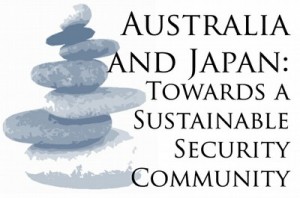Date: November 12, 2011
Time: 9.00AM to 12.30PM
Listen to session 1 and session 2 of the public forum.
Is the growing security relationship between Japan and Australia sustainable and appropriate? Long closely tied through trade and investment, economic interdependence is now complemented by Australia-Japan military ties that are far deeper and more compelling than is usually realised in either country—as symbolized by the 2007 Joint Security Declaration. Both countries rely on US extended nuclear deterrence, yet in 2008 they established the joint International Commission on Nuclear Non-proliferation and Disarmament.
This symposium examined these and more specific questions including:
* Do these joint military and diplomatic initiatives respond appropriately to the security threats facing both countries?
* Since both countries rely on US extended nuclear deterrence, should they examine alternative approaches to nuclear security such as more aligned conventional deterrence postures and a Northeast Asian nuclear weapons-free zone?
* Given that the their economic interdependence centres on Australian energy exports to Japan, what are the economic and security implications of the Fukushima nuclear accident, and Japan’s subsequent energy strategic reorientation?
* Is a Japan-Australia sustainable security community possible? Is it desirable? Is the integration of their economic, energy, and technological futures sufficient to sustain such a community? If so, what needs to be done to facilitate such community building?
These questions were answered in a series of short, sharp talks in a public symposium by leading Japanese and Australian analysts and policy-makers, together with senior business and community leaders, including the former Australian Prime Minister, Mr Malcolm Fraser. Mr Fraser’s government signed the Basic Treaty of Friendship and Cooperation in 1976 that laid the foundation for the present-day close bilateral relations. He is a founding member of the Asia Pacific Leadership Network seeking to abolish nuclear weapons.
This was a public event and simultaneous translation was provided.
The symposium was convened by Nautilus Institute and funded by the Australian Japan Foundation and Nautilus Institute.
Speakers:
- Malcolm Fraser, Fmr. Prime Minister, Australia
- Inoguchi Takashi, University of Tokyo
- Peter Hayes, Nautilus Institute
- Richard Andrews, Minister-Counsellor Political, Australian Embassy in Japan
- Richard Tanter, Nautilus Institute
- Kawasaki Akira, Peace Boat
- Michael Hamel-Green, Victoria University
- Richard Leaver, Flinders University
- M. Paul Sukagawa, Mitsui Iron Ore Development
- Takase Kae, Governance Design Laboratory, Inc.
- Iida Tetsunari, Institute for Sustainable Energy Policies
- Colin Heseltine, Nautilus Institute
- Satake Tomohiko, National Institute for Defense Studies
Agenda:
| 9:00 AM | Welcome |
| 9:05 AM | Opening presentation |
| 9:15 AM | Session One: Climate Change, Energy Interdependence, and the Agenda for Sustainable Security after Fukushima |
| 10.30 AM | Tea break – 15 mins |
| 10.45 AM | Session Two: Japanese and Australian Security and the Unfolding of Nuclear Abolition |
| 12:00 PM | Closing remarks |
Venue:
5-11-16 Roppongi, Minato-ku, Tokyo 106-0032
Phone: +81-3-3470-4611
Papers and Presentations: Please click here for papers and presentations
Suggested reading: Please click here for a list of suggested reading
Host: The Nautilus Institute for Security and Sustainability
Funded by: Australia-Japan Foundation (Australian Department of Foreign Affairs and Trade)

For more information contact Joan Diamond at joandiamond@nautilus.org


